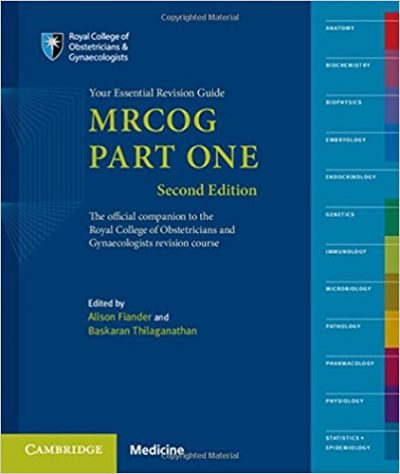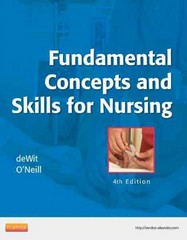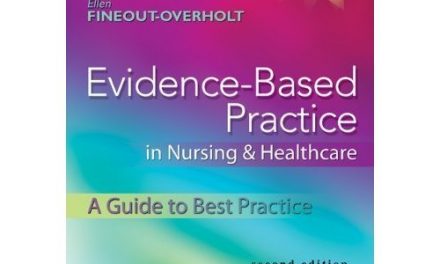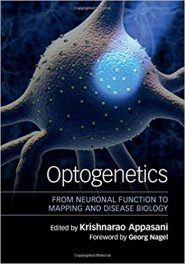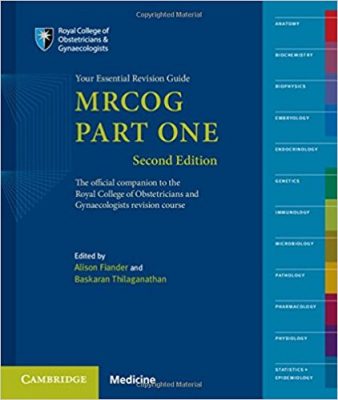 (Official Companion of the Royal College of Obstetricians and Gynecologists revision course)
(Official Companion of the Royal College of Obstetricians and Gynecologists revision course)
Editors: Alison Fiander and Baskaran Thilagandhan
Publisher: Cambridge University Press – 538 pages
Book Review by: Nano Khilnani
For those seeking to enter into the third year of specialist training and later, employment into the medical specialty of obstetrics and gynecology in the United Kingdom, they must first pass the three-part MRCOG examination. MRCOG refers to someone who is a “Member, Royal College of Obstetricians and Gynecologists.”
This book provides information for the first part of that exam. In chapter 1 entitled Revision Guide Part 1 MRCOG, you will see listed the 19 modules that are essentially skills and practical care areas in which the aspiring practitioner must gain familiarity. If you are one of those people, go to https://www.rcog.org.uk/en/careers-training/mrcog-exams/part-1-mrcog/
To keep you focused on this book review, here are the 19 modules:
- 1: Clinical skills
- 2: Teaching, appraisal and assessment
- 3: Information technology, clinical governance and research
- 4: Ethics and legal issues
- 5: Core surgical skills
- 6: Postoperative care
- 7: Surgical procedures
- 8: Antenatal care
- 9: Maternal medicine
- 10: Management of labour
- 11: Management of delivery
- 12: Postpartum problems (the puerperium)
- 13: Gynaecological problems
- 14: Subfertility
- 15: Sexual and reproductive health
- 16: Early pregnancy care
- 17: Gynaecological oncology
- 18: Urogynaecology and pelvic floor problems
- 19: Developing professionalism
In essence, the Part 1 MRCOG exam tests knowledge of all aspects of basic science related to clinical Obstetrics and Gynecology. It seeks to ask both basic and applied science questions and to keep the questions relevant to the obstetrics-and-gynecology trainee. It consists to two papers: each asks 100 Single Best Answer (SBA) questions. The examinee is allotted 150 minutes for each of the two papers. A one-hour break is provided in between answering the two papers.
Thirty-five specialists – all from the United Kingdom except one from Canada – in a number of fields related to obstetrics and gynecology including embryology, endocrinology, epidemiology, immunology, pharmacology, and others (as the titles of the sections below show) – authored the 36 chapters of this book. Too numerous to name those chapters, we list here the titles of the 14 Sections to provide you a broad overview of the coverage of this book
- Section 1 – Introduction
- Section 2 – Anatomy
- Section 3 – Biochemistry
- Section 4 – Biophysics
- Section 5 – Embryology
- Section 6 – Endocrinology
- Section 7 – Genetics
- Section 8 – Immunology
- Section 9 – Microbiology
- Section 10 – Pathology
- Section 11 – Pharmacology
- Section 12 – Physiology
- Section 13 – Statistics and Epidemiology
- Section 14 – Data Interpretation
As you can see above, the coverage of this book is quite extensive, going into 14 areas. The coverage is also intensive, going deep into details, with this book being more than 500 pages in length.
The editors Alison Fiander and Baskaran Thilagandhan write in chapter 1 that a period of about six months needs to be allocated to study and review the materials in this book, and to practice answering the questions, in order for you to be adequately prepared to tackle the exam successfully. It has been said often that ‘practice makes perfect’. We cannot overemphasize that point as it relates to preparing for an exam such as this one.
Many of the 35 authors of the chapters if this book have taught on sections of the RCOG Part 1 review course. This book contains much, but not all of the current information required for successfully passing the exam.
Knowledge in some fields such as genetics and immunology is growing at a much faster pace than others, so we urge you to get updated knowledge in these two fields from other sources, so that you will be prepared more thoroughly to tackle Part 1 of the RCOG exam. Good luck to everyone !
Editors:
Alison Fiander is Clinical Lead for the RCOG Leading Safe Choices programme and previously Chair of Obstetrics and Gynecology at Cardiff University. She is past Chair of RCOG’s MRCOG Part I Subcommittee and and past Chair of the RCOG Global Health Project Development committee.
Baskaran Thilagandhan is a Consultant Obstetrician and Professor of Fetal Medicine at St. George’s University of London. Professor Thilagandhan was a member of the RCOG’s Part I MCQ Sub-committee between 2007 and 2008. He is past Chair of the Meetings Committee and past RCOG Part I MRCOG organizer.

